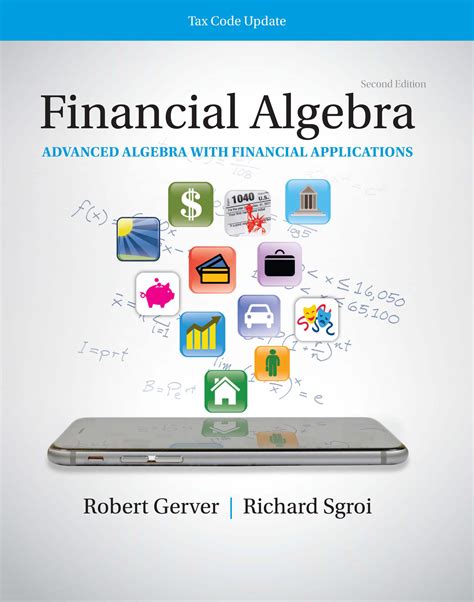The world of finance is complex and multifaceted, with a multitude of variables and factors influencing the decisions made by investors, analysts, and institutions. To navigate this landscape effectively, a strong understanding of advanced algebra is essential. Algebra provides the tools and techniques necessary to model, analyze, and solve problems in finance, and is a fundamental component of many financial applications.
Algebraic techniques are used extensively in finance to model complex systems, optimize portfolios, and manage risk. From calculating yields and returns to pricing options and derivatives, algebra plays a critical role in many financial calculations. In this article, we will explore some of the ways in which advanced algebra is used in financial applications, and provide examples and illustrations to demonstrate its power and versatility.
Applications of Advanced Algebra in Finance
Advanced algebra has numerous applications in finance, including:
- Portfolio optimization: Algebraic techniques are used to optimize portfolios by identifying the optimal mix of assets to achieve a given level of return while minimizing risk.
- Risk management: Algebra is used to model and manage risk in financial systems, including the use of Value-at-Risk (VaR) models and other risk metrics.
- Derivatives pricing: Algebraic techniques are used to price options, futures, and other derivatives, and to model the behavior of these instruments.
- Yield curve analysis: Algebra is used to model and analyze yield curves, which are critical for understanding interest rates and bond prices.

Algebraic Techniques Used in Finance
Some of the algebraic techniques used in finance include:
- Linear algebra: Linear algebra is used extensively in finance, particularly in the analysis of portfolios and the calculation of risk metrics.
- Matrix algebra: Matrix algebra is used to model and analyze complex systems in finance, including the use of eigenvectors and eigenvalues.
- Calculus: Calculus is used in finance to model and analyze continuous-time systems, including the use of differential equations.
- Stochastic processes: Stochastic processes are used to model and analyze random systems in finance, including the use of Brownian motion and other stochastic models.

Real-World Examples of Advanced Algebra in Finance
Here are some real-world examples of advanced algebra in finance:
- Portfolio optimization: A pension fund manager uses algebraic techniques to optimize a portfolio of stocks and bonds, with the goal of achieving a return of 8% per year while minimizing risk.
- Derivatives pricing: A trader uses algebraic techniques to price a call option on a stock, taking into account the underlying stock price, volatility, and interest rates.
- Risk management: A risk manager uses algebraic techniques to model and manage risk in a portfolio of assets, including the use of Value-at-Risk (VaR) models and other risk metrics.

Best Practices for Mastering Advanced Algebra in Finance
To master advanced algebra in finance, follow these best practices:
- Practice, practice, practice: Practice is key to mastering advanced algebra in finance. Work through examples and problems to build your skills and confidence.
- Use real-world examples: Use real-world examples to illustrate algebraic techniques and to demonstrate their relevance to finance.
- Focus on applications: Focus on the applications of advanced algebra in finance, rather than just the theory.
- Use technology: Use technology, such as computer software and online resources, to support your learning and to perform calculations.

Gallery of Advanced Algebra in Finance






FAQs
What is advanced algebra in finance?
+Advanced algebra in finance refers to the use of algebraic techniques, such as linear algebra and calculus, to model and analyze complex financial systems.
What are some applications of advanced algebra in finance?
+Some applications of advanced algebra in finance include portfolio optimization, risk management, derivatives pricing, and yield curve analysis.
How can I master advanced algebra in finance?
+To master advanced algebra in finance, practice is key. Work through examples and problems, use real-world examples, focus on applications, and use technology to support your learning.
By mastering advanced algebra in finance, you can gain a deeper understanding of complex financial systems and make more informed decisions. Whether you are a student, a professional, or simply interested in finance, advanced algebra is an essential tool for success.
